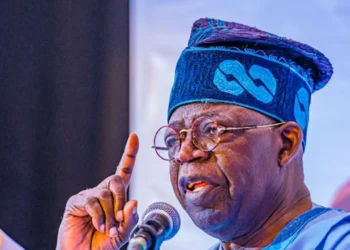 Hundreds of people have died in a surge of ethnically-charged violence in Nigeria’s divided heartlands, officials said, piling pressure on a government already facing Islamist militants in its northeast and rebels in its oil-rich south.
Hundreds of people have died in a surge of ethnically-charged violence in Nigeria’s divided heartlands, officials said, piling pressure on a government already facing Islamist militants in its northeast and rebels in its oil-rich south.
The fighting triggered by competition over scarce resources has come at a particularly sensitive time for Kaduna city, which is about to become the main air hub in central and northern Nigeria, after the capital Abuja’s airport closes temporarily for runway repairs in March.
Farmer Ibrahim Sabo said cattle herders armed with assault rifles raided his village Kalangai in southern Kaduna in November, forcing him and his family to hide in surrounding fields.
“We left everything we harvested and they took our cattle. We have been running ever since,” said the 75-year-old in Kakura village where he took refuge.
The violence has focused attention on President Muhammadu Buhari, a former military ruler who vowed to restore order in Africa’s most populous nation when he came to power in May 2015.
He held a five-hour session with senior security and army officials in Abuja on Thursday on how to tackle the unrest.
Security agencies are already deploying extra forces to secure Kaduna’s airport and its highway to Abuja, a route often targeted by kidnappers.
That all comes on top of an insurgency by Boko Haram Islamists in the northeast, beaten back last year by a military coalition of neighbouring nations, but showing signs of a resurgence with a recent step-up in bombings.
Militants in the southern Niger Delta oil hub have said they are ready to resume pipeline attacks, and there have also been clashes between Shi’ite and Sunni Muslims in Kaduna state.
FESTERING DISPUTES
Locals say the Kaduna violence grew out of festering disputes over territory in October and November, then escalated sharply, exacerbated by north-south, Muslim-Christian tensions in a patchwork nation.
Details of attacks and precise figures are hard to come by in the remote territory.
The national disaster agency NEMA said on Friday it had recorded a total of 204 deaths since October in Kafanchan and Chikun, two of the four municipal districts worst hit by the violence, with no details from the others.
Christian leaders released a statement late December saying 808 people had died – an estimate dismissed by Kaduna state police commissioner Agyole Abeh who did not give his own figure.
The authorities had already sent in reinforcements – 10 units, each with 63 police officers, using 20 armoured cars, he added.









